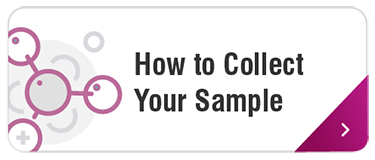ZRT SAMPLE TYPES
The only way to know if hormones are in balance is to test them. Therefore, it’s vital to partner with a lab that understands subtle differences between testing in different sample types and has both the experience and technology to deliver the most accurate results.
ZRT offers testing in 4 different sample types so you can choose the option that is best for you and your patient’s needs to achieve optimal clinical outcomes.
Our Testing Methodologies:

Saliva Testing identifies bioavailable hormone levels – the active quantity that's free to move into body tissue. Its non-invasive nature also makes it the gold standard for tests requiring multiple collections, such as diurnal cortisol.
Suitable for:
- Assessing “free” (unbound to carrier proteins) hormone levels
- Monitoring hormone replacement given orally, topically, vaginally or via pellets
- Collecting multiple samples during a day, e.g., determining diurnal cortisol levels for adrenal stress assessment
Not suitable for:
- Monitoring sublingual/troche hormone replacement
- Patients with dry mouth, e.g., due to Sjögren’s Syndrome

Dried Blood Spot Testing is ideal for measuring hormones and other analytes such as insulin, blood lipids, Vitamin D, thyroid hormones, and elements like lead and magnesium. Blood spot testing gives results equivalent to serum but with distinct advantages over serum testing for monitoring topical and vaginal hormone supplementation.
Suitable for:
- Assessing total circulating hormone levels (free plus protein-bound)
- Patients with dry mouth and/or children who may have difficulty collecting saliva
- Monitoring hormone replacement therapy (oral, sublingual, pellet)
- Assessing thyroid health, fertility parameters, and cardiometabolic risk factors
Dried Blood Spot testing is superior to Serum for:
- Assessing interstitial tissue/capillary hormone levels reflecting topical or vaginal hormone supplementation
- Toxic and nutritional elements requiring a whole blood sample
- Self-collection of sample at home at a time convenient to the patient and avoiding a trip to the phlebotomist

Dried Urine Testing is the patient-friendly, discreet, simple alternative to all-day urine collection in a jug. Only 4 samples in one day are needed to assess adrenal and sex steroid hormone metabolic by-products and neurotransmitters, while 2 samples accurately determine 24-hour excretion of essential elements like iodine and selenium, and toxic heavy metals like arsenic and cadmium.
Suitable for:
- Measuring steroid hormone metabolites, e.g., for breast cancer risk assessment
- Determining toxic element exposure and iodine/selenium sufficiency for thyroid health
- Determining diurnal cortisol production at 4 time points for stress assessment
- Assessing nocturnal and diurnal melatonin production
Not suitable for:
- Monitoring topical or intravaginal hormone replacement therapy

Serum Testing is a broadly accepted method for measuring hormones and other analytes that circulate in the bloodstream. It cannot be used to assess analytes that require a whole blood sample, e.g., HbA1c or lead, for which dried blood spot should be used instead.
Suitable for:
- Assessing total circulating endogenous hormone levels (free plus protein-bound)
- Monitoring hormone replacement therapy (sublingual, patch, pellet)
- Assessing thyroid health
- Assessing analytes that cannot be determined in dried blood spot, e.g., ferritin
Not suitable for:
- Monitoring topical hormone replacement therapy (underestimates tissue uptake)
- Monitoring oral hormone replacement therapy (circulating metabolites interfere with immunoassays)
- Assessing analytes that require a whole blood sample, e.g., HbA1c or blood lead
See Our Sample Types
SALIVA
Learn More
DRIED BLOOD SPOT
Learn More
DRIED URINE
Learn More
SERUM
Learn More
Learn More About Testing
Data Sheet: The Science of Saliva Testing

